![Hwang, Jason Kao: Soliloquies <i>[Used Item]</i> (True Sound Recordings) Hwang, Jason Kao: Soliloquies <i>[Used Item]</i> (True Sound Recordings)](https://www.teuthida.com/productImages/misc4/35272.jpg)
Honoring the courage of the survivors of atrocities experienced in China during World War II, including that of his own father, New York improvising violinist Jason Kao Hwang presents twelve solo pieces performed on the pizzicato violin, works that embrace the struggle of his antecedents with a narrative sense of presentation and extraordinary technique.
In Stock
Quantity in Basket: None
Log In to use our Wish List
Shipping Weight: 3.00 units
Sample The Album:
Jason Kao Hwang-violin
Click an artist name above to see in-stock items for that artist.
UPC: 798576307592
Label: True Sound Recordings
Catalog ID: TS05
Squidco Product Code: 35654
Format: CD
Condition: VG
Released: 2024
Country: USA
Packaging: Cardboard Gatefold 3 Panels
Recorded at True Sound Recording Studio, in Morris Plains, New Jersey, on January 2nd and 3rd, 2024.
This is a USED (previously owned) item
"For the children of war survivors there are conversations with our parents we wished we had and could not. I often wonder about my parents' vague allusions to atrocities they survived in China during World War II because their trauma was far greater than I can imagine, even now, over twenty years since their passing. In Soliloquies, I honor their courage by embracing their voices within mine, to sing into our unknowable silence encircling dreams. I am especially playing for my father, who endured multiple strokes, the last of which took his voice."-Jason Kao Hwang
"Shakespeare buffs know soliloquies as intimate dramatic monologues in which characters stand alone on stage to confide their innermost thoughts and feelings directly to the audience, but how might an artist like Jason Kao Hwang reconceive this practice in an improvisational context, where author and character are one and the same, and their musical statement is composed as extemporaneously as words freely spoken? The fascinating possibilities that Jason explores in these solo violin improvisations open new vistas into the autobiographical aspects of his own distinctive musical language, as developed and deployed in musically reimagined moments to bridge the cultural-historical gulf dividing his family's first- and second-generation immigrant experiences.
However improvisers' personas might transmute to fit the different roles they play across various and sundry performance contexts, the essential coherence of their fundamental musical identities comes from embodied dispositions - often unconsciously internalized - which structure their improvisations in individually distinctive but socially intelligible ways. Even across Jason's vast and diverse body of work, a careful listener can thus discern a unique accent distinguishing his musical idiom, one that expresses the challenge of speaking one language through another, while giving voice to the aesthetic life history that shaped it. In this respect, his professional endeavors to apprehend East Asian musical traditions through his collaborative contemporary jazz conception seem to echo his personal struggles, as a monolingual English speaker growing up in a bilingual Chinese-American household, to make sense of his parents' musical-sounding conversations, gleaning meaning from words he couldn't understand by attuning his ears to the native nuances of prosody and rhythm that also accented their adopted English, hinting at deeper meanings otherwise lost in translation.
As it happens, the extraordinary pizzicato technique Jason showcases on the recordings at hand harkens back to his earliest attempts - dating from his emergence on the New York scene in the late 1970s - to engage such intercultural dynamics, accompanying choreographer Theodora Yoshikami's dance productions at Chinatown's Basement Workshop with his downtown loft-jazz colleague Will Connell by his side. As one can hear in selections like "Silhouettes Lean Forward" or "Bending Branches Into Roots," the percussive punch of his plucked violin strings could easily send a whole company in motion across the floor, as he shuffles through various rhythm-section roles, evoking drummer, bassist, and occasionally even guitarist by turns. At the same time, though, the portamento slides ending the former's phrases point toward mutually reinforcing African and Asian diasporic resonances, between the sounds of tension and talking drums on the one hand and those of zithers from the gayageum-koto-qin family on the other. Similar pitch-bending portamentos, particularly reminiscent of the Korean gayageum, open "Where the River Runs Both Ways" and define key sections of "Before God." Bell-like harmonics closely associated with East-Asian zither traditions also end "Hungry Shadows" and punctuate the first section of "Remembering Our Conversation."
By the same token, dramatic tremolos, characteristic of the Chinese pipa (plucked lute) masters with whom Jason has collaborated, appear prominently throughout, especially the high and fast single-note strumming that launches "At the Beginning," and "Encirclement," and lends additional rhythmic impetus to the emphatic tonal-language inflections of "Dreams Dream." The high transient plucks foregrounded at the beginning and end of "Shards" suggest pipa technique as well, while also sounding like percussive wood blocks or claves, with timbral commonalities pointing back full circle in the direction of another Afro-Asian sonic nexus.
Clearly, Jason's fortuitous choice to begin the session playing pizzicato - a technique too often relegated to passing effects in classical violin literature - revealed new worlds demanding immediate and sustained exploration. Indeed, in wake of this first soliloquy, dozens of other plucked improvisations followed in rapid succession, one inspiring the next, hour after hour, each spinning new narratives embracing his parents' vividly resounding voices to confront and come to terms with their unspoken traumatic histories and unresolved emotional legacies.
Anyone who has ever yearned to return to emotionally vibrant childhood moments with the latter-day hindsight of adult perspective - as we all do in poignant dreams filling restless nights - will understand Jason's musical longing to "reach out across the silence, hoping for an answer" that can never come, from those now lost to all but the most cherished memories. As we join him in these masterfully extemporized reveries, his every plucked note of hope against hope cannot but set our own heartstrings into sympathetic resonance."-Scott Currie, from the liner notes
Jason Kao Hwang Biography
"The music of Jason Kao Hwang (composer/violin/viola) explores the vibrations of his history. His compositions are often narrative landscapes through which sonic beings embark upon extemporaneous, transformational journeys. His most recent releases, Book of Stories, Uncharted Faith, The Human Rites Trio, Conjure, and Blood, have received critical acclaim. Raised during the "melting pot" era of assimilation, Mr. Hwang did not learn Chinese from his immigrant parents, only English. When his parents spoke in Chinese to each other, he would listen intently to glean meaning from the inflection, pitch, rhythm, and timbre of their phrases. Mr. Hwang imagines this musical experience of the Chinese language as the foundation of his creative instincts. In addition, amongst his many musical inspirations are the Chinese erhu and pipa, as well as the Korean gayageum. In 2020, 2019, 2018, 2013 and 2012, the El Intruso International Critics Poll voted him #1 for Violin/Viola. In 2017 Downbeat Magazine named his quintet Sing House as one of the best CDs of the year. The 2012 Downbeat Critics' Poll voted Mr. Hwang as Rising Star for Violin. The first Burning Bridge was one of the top CDs of 2012 by both Jazziz and the Jazz Times. In 2011 he released Symphony of Souls performed by his improvising string orchestra, Spontaneous River. In 2010, the New York City Jazz Record selected Commitment, The Complete Recordings, 1981-1983 from a collective that was Mr. Hwang's first band, as one of the 2010 Reissued Recordings of the Year. His quartet EDGE released, EDGE (2006), Stories Before Within (2008), and Crossroads Unseen (2011), all of which appeared on many top ten of the year lists. His chamber opera The Floating Box, A Story in Chinatown was one of the Top Ten Opera Recordings of 2005 by Opera News. Mr. Hwang has received a 2023 Fellowship from the New Jersey State Council on the Arts. He has received past support from Chamber Music America, NEA, Rockefeller Foundation, NY Community Trust, NYSCA, US Artists International, Meet the Composer, and others. As violinist, he has worked with Henry Threadgill, William Parker, Anthony Braxton, Butch Morris, Reggie Workman, Pauline Oliveros, Steve Swell, Taylor Ho Bynum, Tomeka Reid, Billy Bang, Leroy Jenkins, Patrick Brennan, Will Connell, Jr., Zen Matsuura, Oliver Lake, Jerome Cooper and others. "
Artist Biographies
• Show Bio for Jason Kao Hwang "Jason Kao Hwang (composer/violin/viola) recently released the CD Sing House, featuring his quintet, and VOICE, which features several ensembles with poetry. Sing House performances include the Vision Festival and Edgefest (MI). Burning Bridge, his octet of Chinese and Western instruments was one of the top CDs of 2012 in Jazziz and the Jazz Times. Performances include the Festival International de Musique Actuelle (Canada) and Freer Gallery (D.C.). The 2012 Downbeat Critics' Poll voted Mr. Hwang as "Rising Star for Violin." In 2011 he released two critically acclaimed recordings, Symphony of Souls, for improvising orchestra, and Crossroads Unseen, the third CD of his quartet EDGE. His opera, The Floating Box, A Story in Chinatown, was one of the top ten recordings of 2005 in Opera News. As violinist, he has worked with Wadada Leo Smith, Pauline Oliveros, William Parker, Anthony Braxton, Steve Swell, Tomeka Reid, and others. Mr. Hwang has received support from Chamber Music America, US Artists International, the NEA, Rockefeller Foundation and others. Mr. Hwang currently teaches sound design at New York University." ^ Hide Bio for Jason Kao Hwang
1/13/2025
Have a better biography or biography source? Please Contact Us so that we can update this biography.
Track Listing:
1. At The Beginning 2:37
2. Hungry Shadows 3:37
3. Vagabond 2:00
4. Spinning Coins 2:43
5. Remembering Our Conversation 3:19
6. Where The River Runs Both Ways 5:42
7. Dreams Dream 2:55
8. Silhouettes Lean Forward 3:17
9. Encirclement 5:41
10. Bending Branches Into Roots 4:38
11. Shards 6:13
12. Before God 6:08
Improvised Music
Free Improvisation
Jazz
NY Downtown & Metropolitan Jazz/Improv
Stringed Instruments
Solo Artist Recordings
Used CDs
Used CD Alphabetic List
Search for other titles on the label:
True Sound Recordings.


![Hwang, Jason Kao: Soliloquies <i>[Used Item]</i> (True Sound Recordings) Hwang, Jason Kao: Soliloquies <i>[Used Item]</i> (True Sound Recordings)](https://www.teuthida.com/productImages/full/35654.Full.jpg)




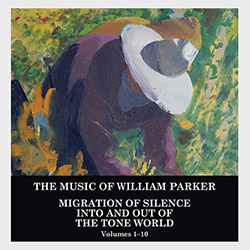

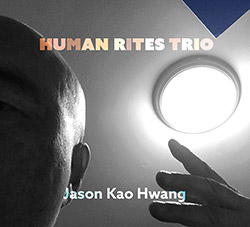
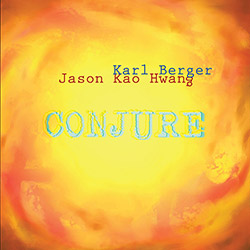

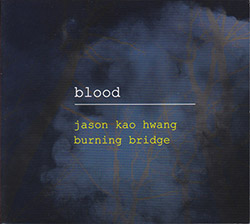

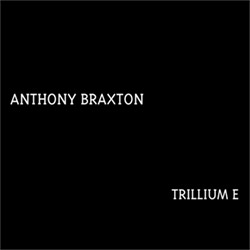

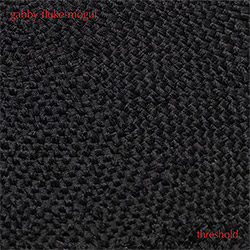
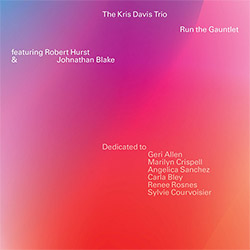
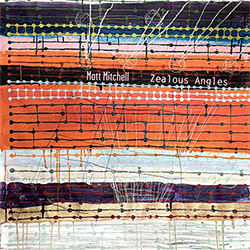
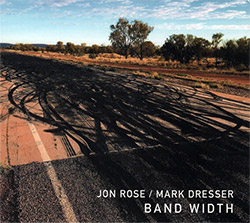
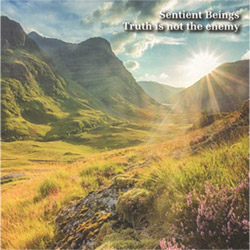
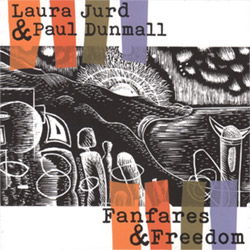
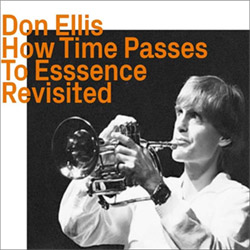
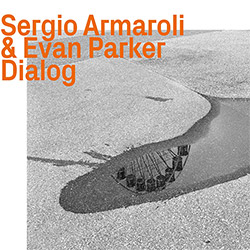





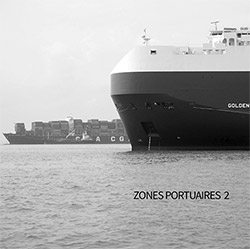
![111 (Michelle / Villamil): Live at Opus 40 [CASSETTE]](https://www.teuthida.com/productImages/misc4/35986.jpg)
![del Pino, Francisco / Charlotte Mundy: The Sea [CASSETTE]](https://www.teuthida.com/productImages/misc4/35987.jpg)

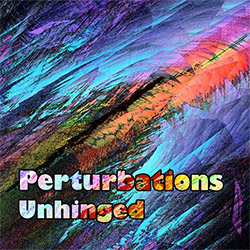

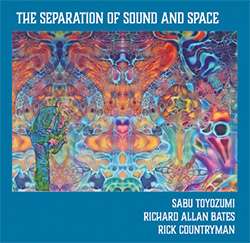
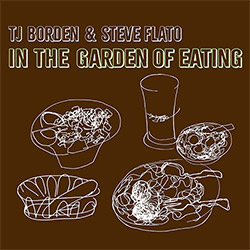

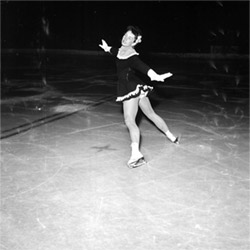
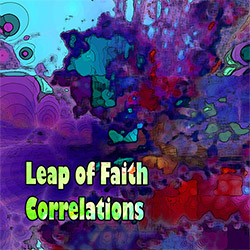

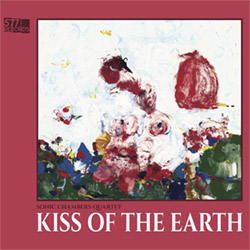

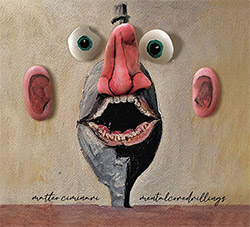

![Niblock, Phill / Anna Clementi / Thomas Stern: Zound Delta 2 [VINYL]](https://www.teuthida.com/productImages/misc4/34623.jpg)
![Yoko, Ono / The Great Learning Orchestra: Selected Recordings From Grapefruit [2 CDs]](https://www.teuthida.com/productImages/misc4/35841.jpg)

![Brotzmann, Peter / John Edwards / Steve Noble / Jason Adasiewicz: The Quartet [2 CDs]](https://www.teuthida.com/productImages/misc4/35975.jpg)
![Brotzmann, Peter / John Edwards / Steve Noble / Jason Adasiewicz: The Quartet [VINYL 2 LPs]](https://www.teuthida.com/productImages/misc4/35976.jpg)
![Thomas, Pat: The Solar Model of Ibn-Al Shatir [VINYL]](https://www.teuthida.com/productImages/misc4/36044.jpg)
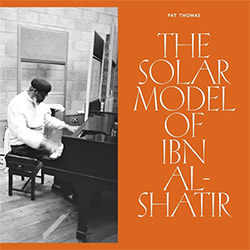



![Rodrigues, Ernesto / Nuno Torres / Guilherme Rodrigues: Whispers In The Moonlight - In Seven Movements [2CDs]](https://www.teuthida.com/productImages/misc4/35765.jpg)



![Cocks, Laura: FATHM [VINYL]](https://www.teuthida.com/productImages/misc4/36055.jpg)













![Schindler, Udo / Sandy Ewen / Damon Smith: Munich Sound Studies Vols. 4, 5 & 6 [3 CDs]](https://www.teuthida.com/productImages/misc4/35966.jpg)
![Turbulence Orchestra & Sub-Units: Smear Out the Difficulties (Double Live) [2 CDs]](https://www.teuthida.com/productImages/misc4/36048.jpg)

![Myers, David Lee : Tin Drop Tear [BOOK w/ DOWNLOAD]](https://www.teuthida.com/productImages/misc4/36030.jpg)

![Ackerley / Prymek / Turner: All Hope With Sleeping Minds [CASSETTE]](https://www.teuthida.com/productImages/misc4/35950.jpg)








![Olencki, Weston : Pearls Ground Down To Powder [VINYL]](https://www.teuthida.com/productImages/misc4/35956.jpg)
![Myers, David Lee: Oculus [2CDs]](https://www.teuthida.com/productImages/misc4/35857.jpg)


![dustsceawung: dustsceawung [CASSETTE w/ Download]](https://www.teuthida.com/productImages/misc4/35753.jpg)




![Halls of the Machine: Atmospheres For Lovers And Sleepers [CASSETTE w/ DOWNLOAD]](https://www.teuthida.com/productImages/misc4/35806.jpg)











![Zorn, John / JACK Quartet: The Complete String Quartets [2 CDs]](https://www.teuthida.com/productImages/misc4/35609.jpg)

![Lonsdale, Eden: Dawnings [2 CDs]](https://www.teuthida.com/productImages/misc4/35480.jpg)







![Sanna, Claudio: Compositori Sardi Contemporanei II [2 CDs]](https://www.teuthida.com/productImages/misc4/35317.jpg)







![Zurria, Manuel: Fame di Vento [3 CDs]](https://www.teuthida.com/productImages/misc4/35167.jpg)

![Electric Bird Noise / Derek Roddy: 8-10-22 [CD EP]](https://www.teuthida.com/productImages/misc4/35970.jpg)








![Elephant9 : Mythical River [VINYL]](https://www.teuthida.com/productImages/misc4/34624.jpg)



![Elephant9 with Terje Rypdal: Catching Fire [VINYL 2 LPs]](https://www.teuthida.com/productImages/misc4/35355.jpg)
![Deerlady (Obomsawin, Mali / Magdalena Abrego): Greatest Hits [VINYL]](https://www.teuthida.com/productImages/misc4/34876.jpg)







![Surplus 1980: Illusion of Consistency [CD]](https://www.teuthida.com/productImages/misc4/35069.jpg)
![Staiano, Moe: Away Towards the Light [VINYL + DOWNLOAD]](https://www.teuthida.com/productImages/misc4/35037.jpg)



![Caveira (Gomes / Sousa / Abras / Ferrandini): Ficar Vivo [VINYL]](https://www.teuthida.com/productImages/misc4/34643.jpg)
![Coley, Byron: Dating Tips for Touring Bands [VINYL]](https://www.teuthida.com/productImages/misc4/17906.jpg)

![Lost Kisses: My Life is Sad & Funny [DVD]](https://www.teuthida.com/productImages/misc4/lostKissesDVD.jpg)